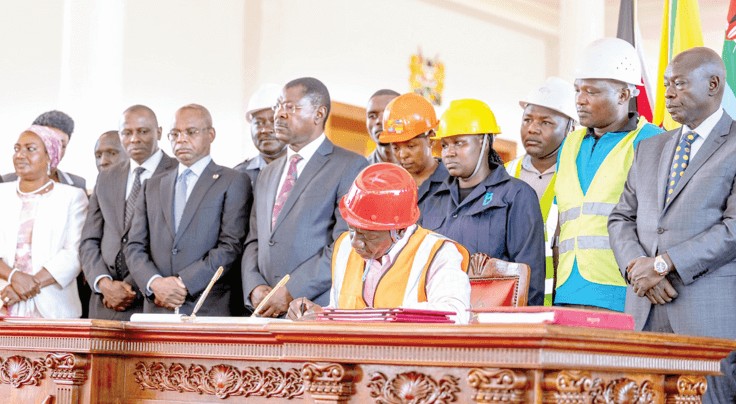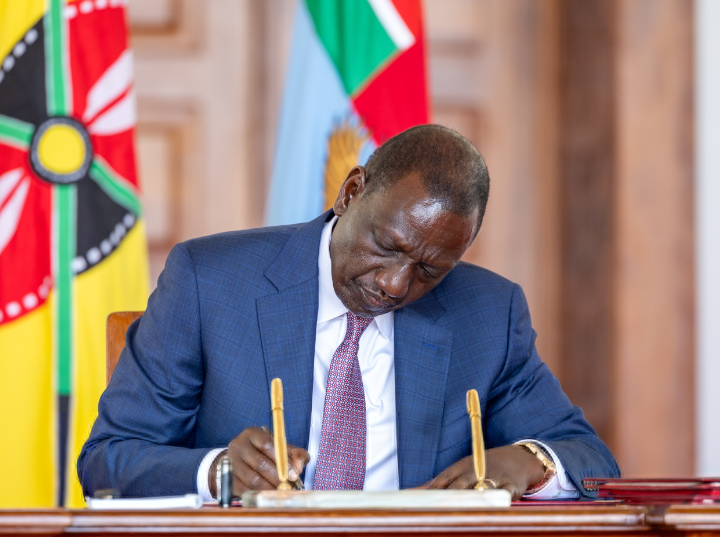Sigh of relief for Ruto as court declines to delay affordable housing levy

A three-judge bench has ruled against a petition seeking to suspend the implementation of the Affordable Housing Act of 2024.
Justices John Chigiti, Olga Sewe, and Josephine Mong’are declined the petition filed by Nakuru-based doctor Magare Gikenyi which sought to suspend the operationalization of the housing levy, citing disregard for the Constitution and discrimination in the ownership of the houses.
“The applications dated April 2, 2024, and April 8, 2024, are hereby dismissed for lack of merit,” the High Court judges ruled.
Gikenyi had gone to court in March to protest violations of the Constitution by the Act, arguing that the Housing Act was in essence acquiring public land for free, developing it and later selling to private individuals.
He argued that this was in contravention of Article 62(2) and (3) of the Constitution, which state that all public land is held and managed and/or allocated by the National Land Commission(NLC) and not any other body.
“The Act does not give NLC on allocation of land and the process of processing of land acquisition,” Gikenyi argued.
Additionally, Gikenyi had argued that the Act failed to appreciate that some Kenyans were already housed and did not need to contribute to acquire housing units in the future.
He remarked that the Act further failed to take into consideration some of the personal preferences of those contributing to it including the location of the house, the style of the build and the payment arrangements of the individual homeowners.

President William Ruto signs a bill at State House. PHOTO/@WilliamsRuto/X.
The bench, however directed that the matter be heard at a later date.
“We direct the matter to be prioritised for hearing during this time,” the bench ruled.
Gikenyi’s petition
Gikenyi had sought the conservatory orders just weeks after President William Ruto signed the Affordable Housing Bill 2024, amid protest by opposition politicians that the deductions would only serve to make the common mwananchi poorer.
The case had enlisted the Attorney General, Parliament, the Senate and the Cabinet Secretaries for Treasury and Lands as respondents.
Gikenyi faulted the respondents, saying the public fund had been founded on weak legal framework, essentially making it a private fund funded by public resources.
He quoted a TIFA report which revealed that the bill was unpopular among Kenyans, saying the legislators had left the Executive to impose the mandatory contributions on the citizens.
“For all practical purposes, the fund subjects employees and other income earners to cruel, inhuman and degrading treatment, which is tantamount to servitude,” Gikenyi argued.
Author
Arnold Ngure
General reporter with a bias for crime reporting, human interest stories and tech. Reach out via: arnold.ngure@mediamax.ke
View all posts by Arnold Ngure








